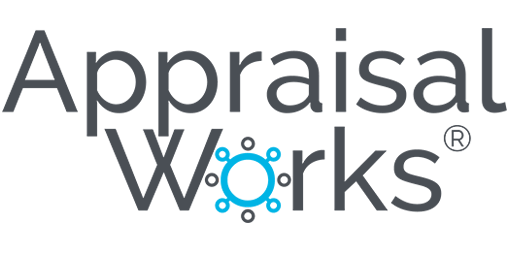Real estate appraisal modernization is finally becoming a priority for lenders. Home valuations are one of the most critical elements, yet the appraisal process has lagged behind the other aspects of the mortgage industry in terms of modernization and digital innovation. Most likely this is due to it being a “back office” process and one that has traditionally been thought of as human-intense – meaning the need for an appraiser onsite limits the extent to which it can be digitized.
The idea of appraisal modernization has been a contentious debate, with naysayers arguing technology does not offer the same accuracy as a traditional, boots-on-the-ground appraisal offers. However, this stigma is far from the truth. Appraisers, lenders, and borrowers all can benefit from appraisal modernization across the board.
Three of the most significant benefits to appraisal modernization and the use of appraisal management technology that benefit all stakeholders – the lender, the appraiser and the borrower are:
- Appraisal modernization allows appraisers to work smarter, not harder, and continue to be a critical part of the appraisal process. Technology cannot replace the expertise, experience, and market knowledge of an appraiser. However, technology can help an appraiser handle their workload more strategically. Rather than conducting and coordinating every aspect of an appraisal – from arranging the home inspection to measuring GLA to submitting the appraisal report – appraisers can leverage appraisal modernization to streamline processes and eliminate manual work. Appraisal management technology grants appraisers with access to property data collected from third-party experts, including interior and exterior photos and certified inspection reports, along with digital floorplans, sketches, and public property data, to conduct a thorough assessment of the property. All without ever having to visit the location. Their deep knowledge of the neighborhoods and geography allow them to weave in critical expertise. The result: appraisers can conduct a higher volume of appraisal orders, which in turn drives more income. Lenders also benefit because when an appraiser can conduct more appraisals in the same amount of time – the lender can close loans faster. Borrowers are happy because the process is streamlined, collaborative and allows them to get a fast and accurate valuation of their property. Borrowers are happy because the appraisal process is less invasive on their time and often more cost effective for them.
- Appraisal modernization reduces costs and increases revenue. Technology was created to streamline and optimize processes, not overcomplicate or over-automate things for the sake of modernization. Appraisal management technology was designed to help lenders and appraisers spend less time on administrative processes and more time serving customers. Think about the amount of time a lender spends switching from spreadsheets to email to AMC systems to order, track and complete a single appraisal. Appraisal management technology gives you a single source of information for all of your appraisal orders – providing a new level of visibility and transparency. The results are clear. Less time wasted on administration, plus reduced overhead costs, combined with the ability to accelerate appraisal turn times, has a direct and positive impact on revenue generation. Borrowers benefit from faster loan cycle times as well.
- Appraisal modernization allows all stakeholders to remain compliant and help mitigate bias. Compliance holds all stakeholders accountable to ensure appraisals are fair and accurate and borrowers are getting an accurate home valuation and an appropriate loan for their property. The recent PAVE Action Plan, which lays out a series of industry regulations to ensure discrimination does not happen during the appraisal process, is an example of a compliance mandate lenders must adhere. Appraisal modernization enhances a lender’s ability to not only remain compliant with current laws but adapt to new regulations as they are passed. Technology allows for automated data mining and algorithms that fact check appraisals against comparable properties. Appraisal modernization, or bifurcation of the appraisal process through hybrid appraisals, introduces a neutral third party to gather data for the subject property. This information is delivered as raw data to the appraiser working solely from their desktop to develop the appraisal. This process minimizes the potential for bias because it creates a more arms-length process between the appraiser and buyer or homeowner. Real-time compliance checks, configurable business rules, appraisal scoring, and action history are in place to ensure you are meeting every standard and are always prepared in the event of an audit. Lenders and appraisers benefit from lower risk, and the borrower has more confidence they are being treated fairly.
If you find your appraisal management process time consuming, frustrating, or outdated, appraisal modernization supported by the right appraisal management technology platform can help. If you’re ready to embrace appraisal management technology, check out our latest whitepaper, “Choosing the Right Appraisal Management Platform.”
